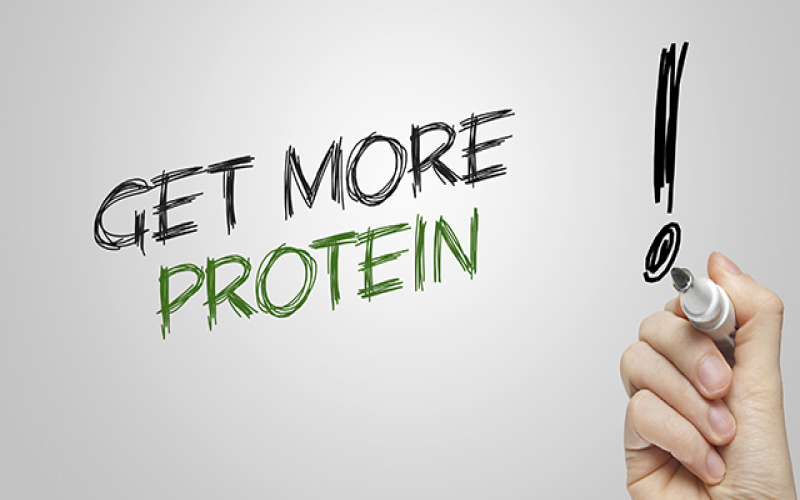Study After Study: More Protein, More Protein, More Protein!
People lose muscle mass and strength naturally as part of the aging process. Known as sarcopenia, this gradual loss of muscle mass can lead to a multitude of health issues from insulin resistance to low bone density. More and more research is pointing to increasing daily protein intake—to at least 90 grams, if not more—in order to combat age-related muscle loss.
According to a study published in the American Journal of Physiology – Endocrinology and Metabolism, higher protein intake improves the body’s ability to build muscle. After four days, they found that the people eating double the amount of protein increased their rate of muscle protein synthesis (i.e. cells using protein to build muscle).1
And research increasingly shows your protein intake can improve your health at any age. In a study from the Pennington Biomedical Research Center, people whose diets were comprised of 15-25% of calories from protein (most people average 10-15%) stored 45% of the excess calories as muscle.2 That’s 125 grams of protein per day if you’re on a 2,000-calorie diet.
And if you can work strength training into your routine, more protein will fuel muscles to become even stronger. A recent review published in the British Journal of Sports Medicine found that more protein—far more than the amounts currently recommended—can increase the results of weight lifting substantially for people over 40.3
Ideal protein level was also something the researchers sought to identify. It ended up being about 1.6 grams of protein per kilogram of body weight per day. That translates to about 130 grams of protein each day for a 175-lb. man.
REFERENCES:
1. http://www.physiology.org/doi/abs/10.1152/ajpendo.00382.2014
Researchers randomly assigned older adults to groups that either: followed the Institutes of Health’s current RDA of 0.8 grams of protein per kilogram of body weight (for a 180-lb. person, about 65 grams of protein per day); or, ate double the RDA (1.5 grams of protein per kilogram of body weight).
3. https://www.ncbi.nlm.nih.gov/pubmed/28698222
Researchers drew this conclusion by reviewing 49 past experiments that had studied 1,863 men and women of various ages and fitness levels for at least six weeks, carefully tracking their protein intake. The data confirmed that those who ate more protein while strength training did develop more muscle mass than those who didn’t.










